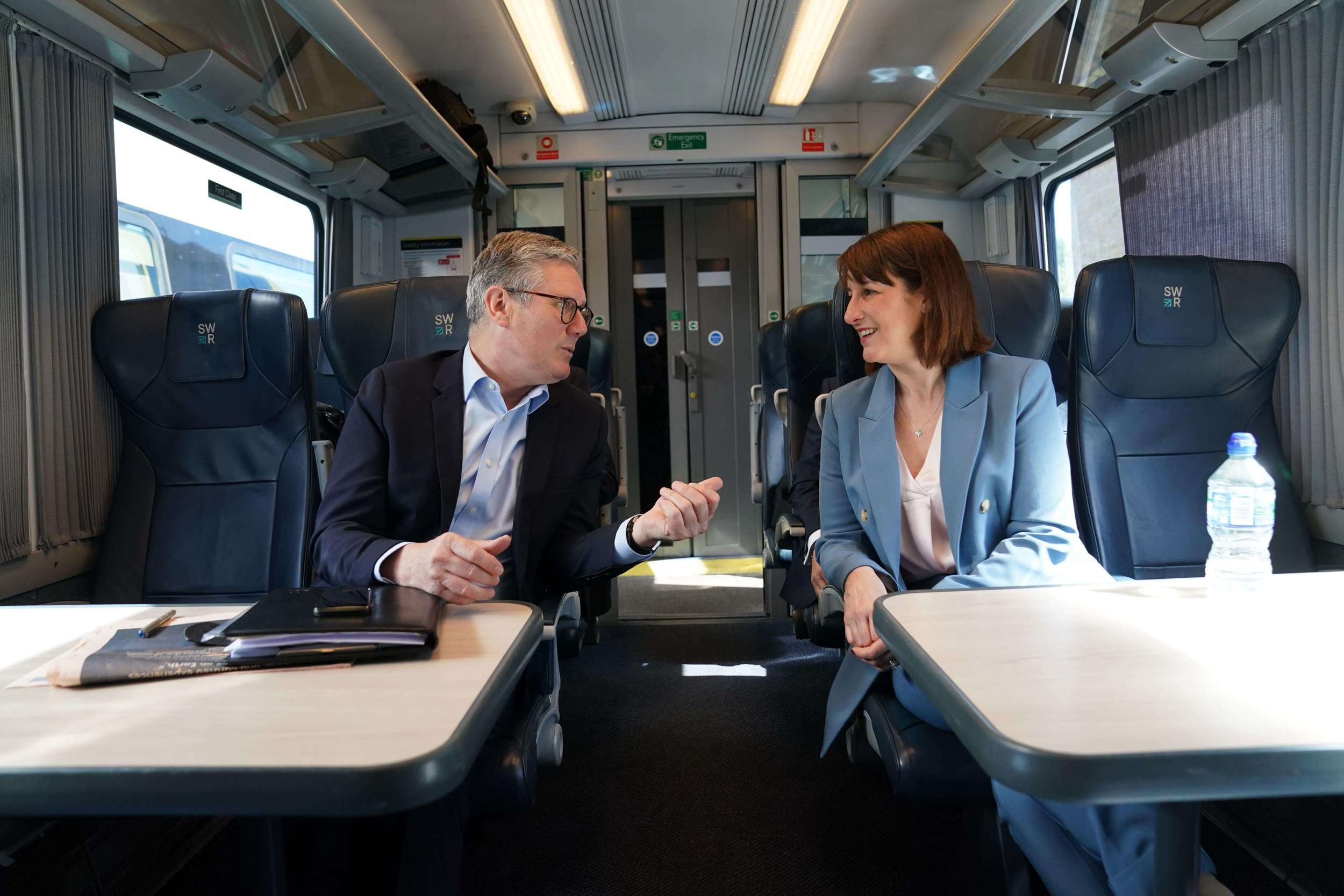
And so that’s it. If the polls are to be believed, there will be change, perhaps total upheaval, of the rail system after 14 years of Conservative rule when the new government starts work on July 5.

And so that’s it. If the polls are to be believed, there will be change, perhaps total upheaval, of the rail system after 14 years of Conservative rule when the new government starts work on July 5.
Fittingly, the postscript of the recent troubled period on the railways was a strong admonishment from a House of Commons committee on the government’s delay to its long-promised restructuring of the industry.
But first, let’s go down memory lane and consider where we were in 2010 when the Conservative-led coalition came to power.
Work on Crossrail had already started. And there was a commitment to build HS2, which had been resisted by Labour transport secretaries such as the late Alistair Darling, before finally being given the go-ahead by Lord Adonis (the last Labour Transport Secretary). It was, however, a very different HS2, with connections to Waterloo and HS1 and tentacles out to Manchester and Leeds.
Labour’s plans for the 2010 election (which of course could never be put into action as it lost) have a vaguely familiar sound to them.
Apart from promising to complete Crossrail (which took until 2022) and electrifying the Great Western Main Line (which remains partially completed), there were some minor goodies such as an enforceable right to the cheapest available ticket (repeated this time) and a tripling of cycle storage (no sign of this).
The incoming government of 2010 was quietly supportive of HS2 - not least because the Chancellor, George Osborne, represented a northern constituency.
But the plan as set out by the Coalition after the election was for the line to go via Heathrow - an idea that was later dropped because there was no viable business case.
The future of Crossrail was in doubt after the 2010 election, but eventually this was pushed through - not least because of pressure from Boris Johnson, who was then mayor of London.
There were promises of ‘longer franchises’ - an idea that always proved impractical because of the need to regulate the train operators and hold them to account.
And there were vague promises of ‘value for money’ fares, which again never materialised.
This, remember, was an austerity government. And there were immediate cuts to the transport budget, with the jettisoning of promised improvements to a series of medium-sized stations and of an order for new trains for what was then the London Midland franchise.
Overall, though, the Coalition government was set on ‘a steady as she goes’ strategy, with no major planned changes to the structure of the railways. Thus the 14-year period of Conservative-dominated governments can be characterised by what former Prime Minister Harold Macmillan famously called the greatest challenge for politicians: “Events, dear boy, events.”
And there has been no shortage of these - ranging from those internal to the industry itself (such as the May 2018 timetable fiasco, the recent lengthy series of strikes, and the massive cost overruns on HS2) to external factors such as climate change, Brexit and COVID.
The past 14 years on the railways have therefore been characterised by sticking plaster responses to upheavals, rather than the setting out of any coherent strategy.
Undoubtedly the worst of these quick fixes was the scrapping of sections of HS2 by Rishi Sunak, at the Conservative party conference last September. This was peak panic mode, an unnecessarily hasty response to a long-term issue that was undoubtedly government at its worst, an attempt to please the party’s base at the expense of any rational plan or strategic thinking.
The patchwork document Network North was an error-strewn embarrassment, and Transport Secretary Mark Harper’s announcements on filling potholes with money allegedly saved from HS2 were quite simply an insult to intelligence.
At the other end of the scale, there has been the snail-paced reaction to the May 2018 timetable debacle, which six years on has not resulted in any significant change.
And it is this which has elicited this Parliament’s final assessment of the government’s policy on the railways - and it is pretty humiliating for the outgoing ministers.
Essentially, the first paragraph of the last report from the House of Commons Public Accounts Committee before the election says it all: “It has been six years since the Department [for Transport] identified the need for a root and branch review of the railway, but it has achieved very little in this time.”
The first sentence of the second paragraph is no better for the outgoing government: “There has been too little focus on passengers and taxpayers and how to get them a better deal.”
And thirdly: “It is unacceptable that much of the rail network remains so difficult to access for many people.”
You get the gist. This is brilliant as a starting point for what Labour (if it forms the next government) must do.
There has been too much focus on messing about with the structure and trying to work out every little detail of what must change before implementing anything. The key must be urgency.
While Labour has tried hard to play down specific expectations of what it is going to do, its key campaign slogan - ‘Change’ - is a hostage to fortune.
Unless some tangible results can be perceived by the electorate in the first year or two of the new government, those opinion poll leads will wither away quickly. And then, with an opposition that may veer sharply to the right, and indeed possibly with the Tories being eclipsed by a new coalition of right-wing supporters encompassing Nigel Farage’s Reform Party, the country could be thrown into turmoil.
In terms of the railways, therefore, the plan to take back the franchises in-house and devolve more powers to local agencies such as the city mayors must (as the recommendations of the Public Accounts Committee report emphasise) show a genuine concern and real improvements for passengers.
Renationalisation may be superficially popular, but few people really understand the implications.
It offers a real opportunity to make things better by simplifying structures, saving millions in bidding and other costs, and allowing longer-term strategic decisions to be made. But these have to be seen to bear fruit quickly.
That raises the inevitable question of money. Sir Keir Starmer and his shadow Chancellor Rachel Reeves seemed to have boxed themselves in with the repetition (which has now become standard for parties vying to be the next government) of entrenching income tax rates that were set a generation ago.
As Professor David Begg, the former head of the Commission for Integrated Transport, said in a recent speech to a conference on Transport after the General Election, Labour needs to be talking about shifting people out of their cars and sending out the right signals in the taxation system.
“The truth of the matter is what we do on roads has a huge impact on rail… so when you’ve got a fuel duty escalator and are not building more roads, and the roads are getting more congested, guess what: trains have a competitive advantage,” he said.
That is the sort of thinking we need to see from a new Labour administration. So, in RAIL 1012, I will set out what I believe Labour’s priorities for rail and transport should be.
The list will be long.
Login to continue reading
Or register with RAIL to keep up-to-date with the latest news, insight and opinion.


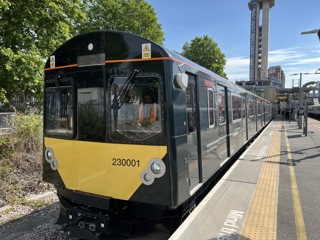
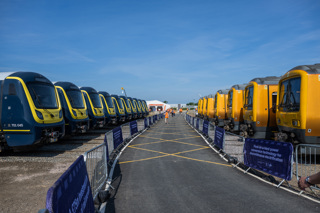
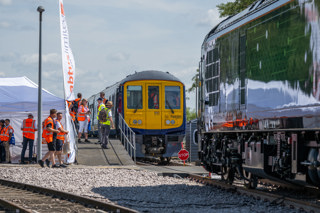
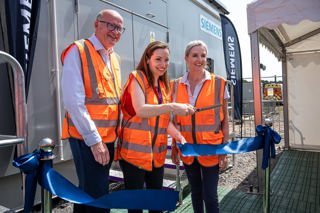
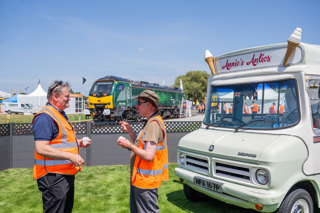








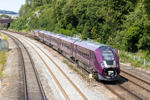


Login to comment
Comments
No comments have been made yet.